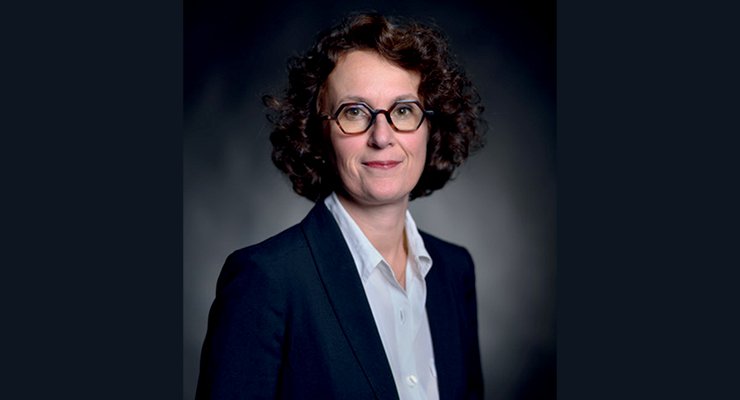Accompanied Projects at the UTC Innovation Centre
One of the objectives of UTC, over and above the training mission, is to accompany students, lecturers and research staff in the processes of creating business concerns, as well as outside companies who wish to see their projects mature. The UTC Daniel Thomas Innovation Centre is a key UTC academic creativity focal point, bringing together training, research and valorisation to serve the overall innovation objective, enabling a concentration of pluridisciplinary skills and actors in the innovation field. The objective of the Innovation Centre is to stimulate innovation (in all its forms) and creativity with an international outlook.
To accompagy students, PhDs and graduates who wish to enter the market-place
UTC encourages its students, PHDs and graduates to develop their personal projects and to set up business concerns, by availing of the various 'innovation-intensive' tools adapted to the situations:
- Providing access to a wide range of Credit courses (CCs), open to all UTC students.
- Participating in national and international competitive exams that relate to innovation:
- The Innovative Project Competition was designed to help the maturation phase of projects presented by students, lecturers and research staff from UTC or in its Local Ecosystem via the facilities of the Innovation Centre. This competition enabled the pre-maturation of several internal UTC projects that led to the creation of start-ups: Novitact, Aspic Engine, Sensovery, Closycom, VirtualSensitive…
- The "24h Innovation challenge", created in 2007, is an international event that aims at developing innovative and creative objects and concepts – in team formations: of between 5 to 8 students, lecturers or research staff. The teams have exactly 24h to propose innovative solutions to problems set by participating enterprises, laboratories or external 'creatives' all partners to the event. The teams present their findings and proposals in a two-minute video.
- The operation 48h to promote your ideas® is an event organized in the framework of InnovENT‑E. For two days, the teams, comprising around 10 students tackle a subject proposed by an enterprise, with a view to identifying an innovative answer to the problem. The main aim of the 48h® incentive is to encourage students (and others) to adopt a more open view on innovation and its dissemination to SMEs in particular, while initiating the students to using tools and methodology that will enhance their creativity.
- The Start-up Weekend: the principle and objective of the Weekend is to create a start-up company in 54h. To begin the process, the participants have 60 seconds to present an idea and elicit interest from the others present, leading to a team. Then, accompanied by the entrepreneurs, they start making a prototype of the product and the necessary business plan for it. During the weekend a Jury convenes and selects the best projects, viz., those they feel can proceed to create viable start-ups.
- The Guy Deniélou Thesis Prize was set up to reward three PhDs after a selection process by a Jury composed of Members outside the PhD school, to have six finalists who meet the criteria of thesis quality, participation in campus life, popularizing their knowledge, etc. The Prize aims at valorising the UTC PhDs and to add some publicity to their research and its impact on day-to-day life, whilst attempting to answer some of today's major challenges (food, energy, security …)
- Proposing the Innovation Centre's 'Creativity Rooms' and the equipment at their disposal, as and when they see fit.
- To enrol for a special "UTC elite entrepreneurship" course! students with an entrepreneurial inclination can choose this elective course lasting minimum one year and their lecture time-table is arranged in such a way that the students can develop their projects and test their chances to become a future entrepreneur.
- The possibility to adapt their timetables to develop personal projects
- The possibility to be supervised by personal coaches who can guide and orient the students to make the best choices while at UTC and for the duration of the course.
- The possibility to leave the "elite entrepreneurship" status at any time
- The possibility to seek advice and help from various 'structures' installed in the Innovation Centre, for example, in relation to intellectual property rights, business plans, patents … (INPI (France's national intellectual property agency), Bpifrance and ADIT (agency for the dissemination of technology-intensive information)) the skills acquired during this proto-entrepreneurial period will prove useful later both for those who set up a business or those who move into profession al positions in the business world.
- An entrepreneurial nursery for young graduates with adapted structures: young UTC graduates can, if they so wish, move into the UTC business nursery.
Sucess stories
Inasmuch as these innovative projects developed at the Innovation Centre provide a new window for UTC with an opportunity for local 'networking' of various skills: scientific, technical and technological, artistic, cultural … These projects can come from SMEs, local authorities, research activities, the students, artists …
Contact
Contacts pour l'innovation à l'UTC



